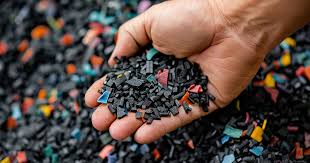Oliver Kloth, the sustainability leader at Celanese, explains why the supplier started incorporating post-consumer recycled (PCR) material into a tried-and-true thermoplastic elastomer to assist manufacturers in cutting costs and their carbon footprint.
Polymer PCR Although the movement toward sustainability is still gaining traction, design engineers still have few options when it comes to incorporating environmentally friendly materials that meet stringent regulatory criteria. The Santoprene TPV (thermoplastic vulcanizates) ECO-R, a recently developed sustainable elastomer from material supplier Celanese, aims to answer this difficulty by providing great performance while minimizing environmental implications.
Santoprene TPV, which frequently replaced thermoset EPDM, was well-known for its rubber-like properties as well as its simplicity of thermoplastic processing and reusability before the new ECO-R grades were released in late 2023. Polymer PCR Since its initial introduction more than 45 years ago, Santoprene TPV has had sustainability ingrained in its DNA.
According to Oliver Kloth, Celanese sustainability leader, “manufacturers have chosen it for decades as a replacement for carbon-intensive and difficult-to-recycle thermoset rubber with a more sustainable solution.”

